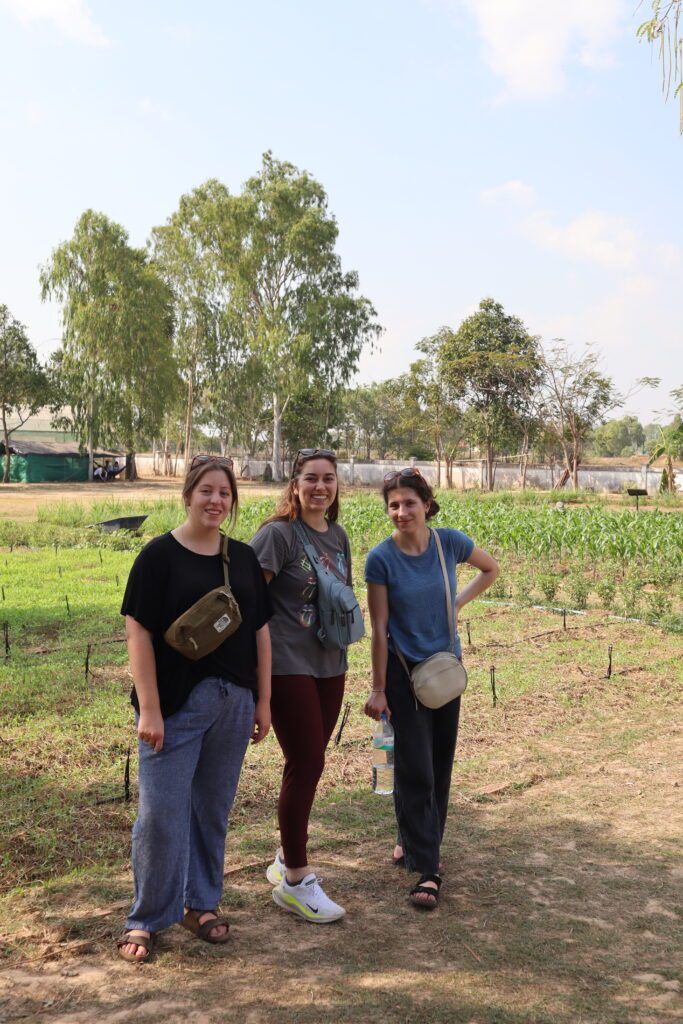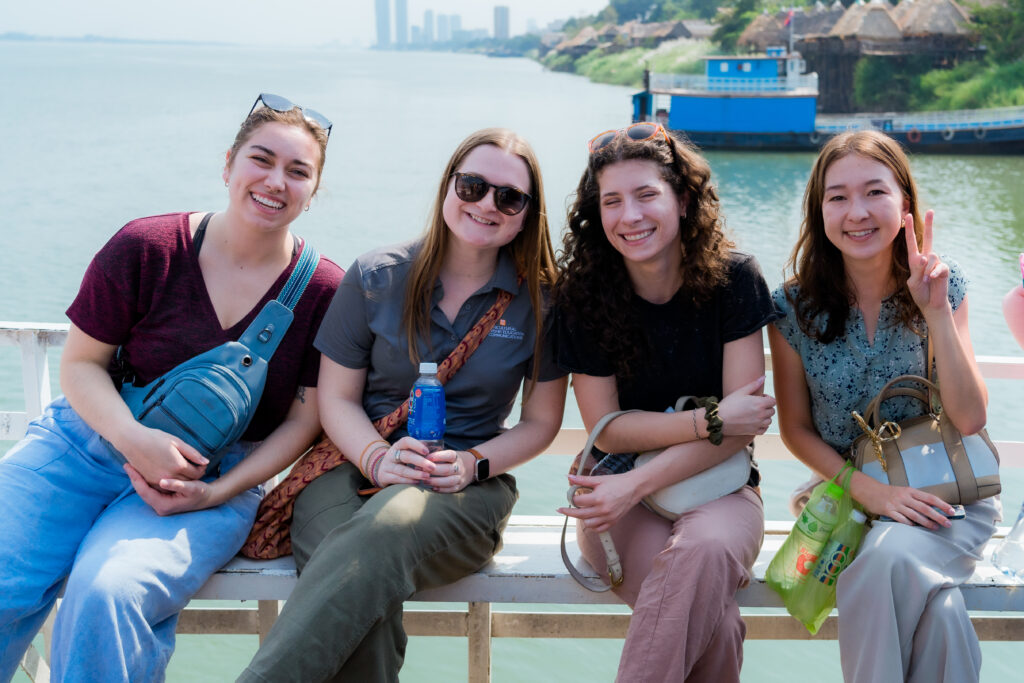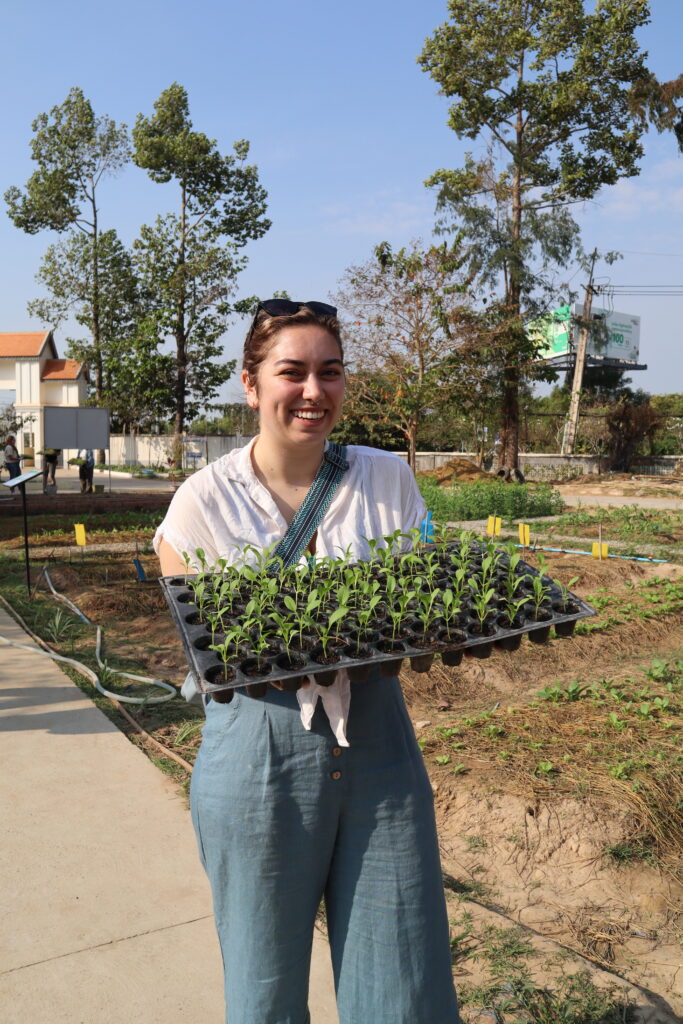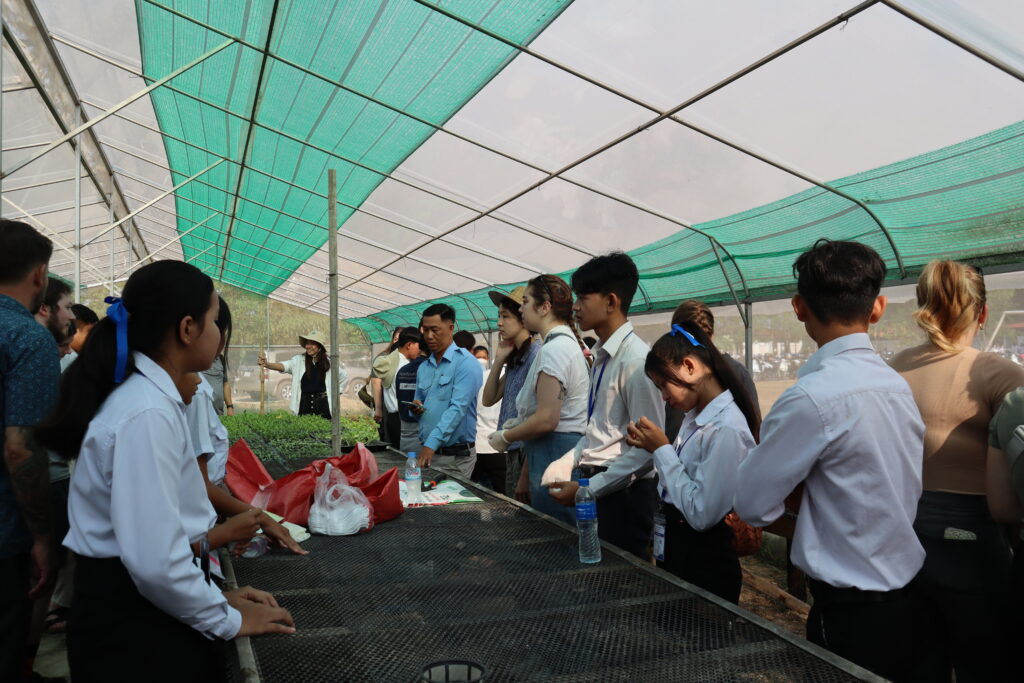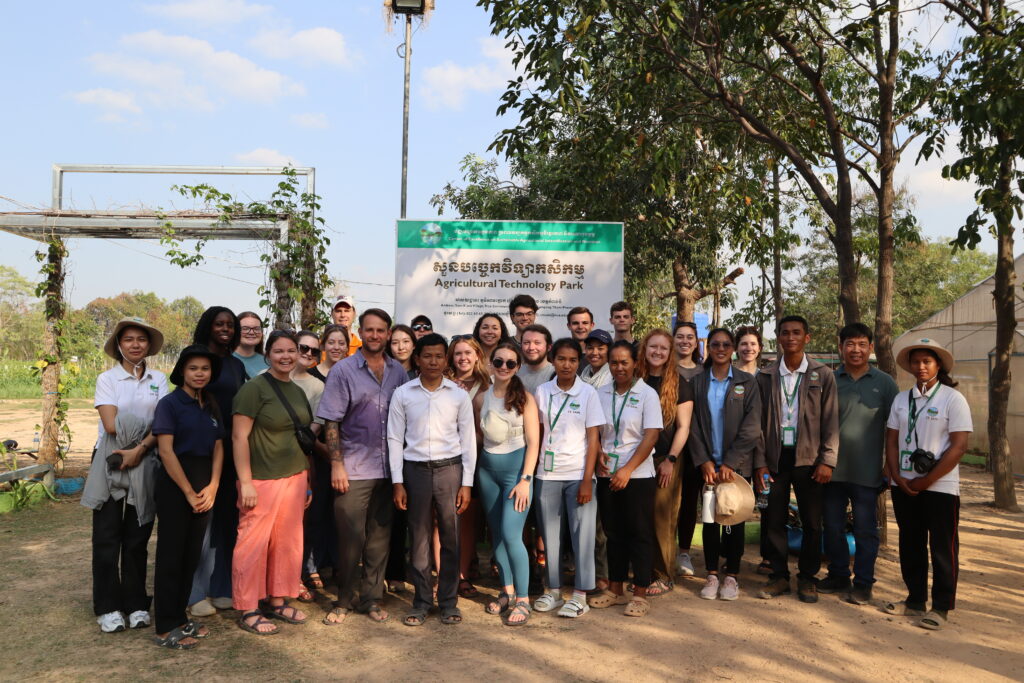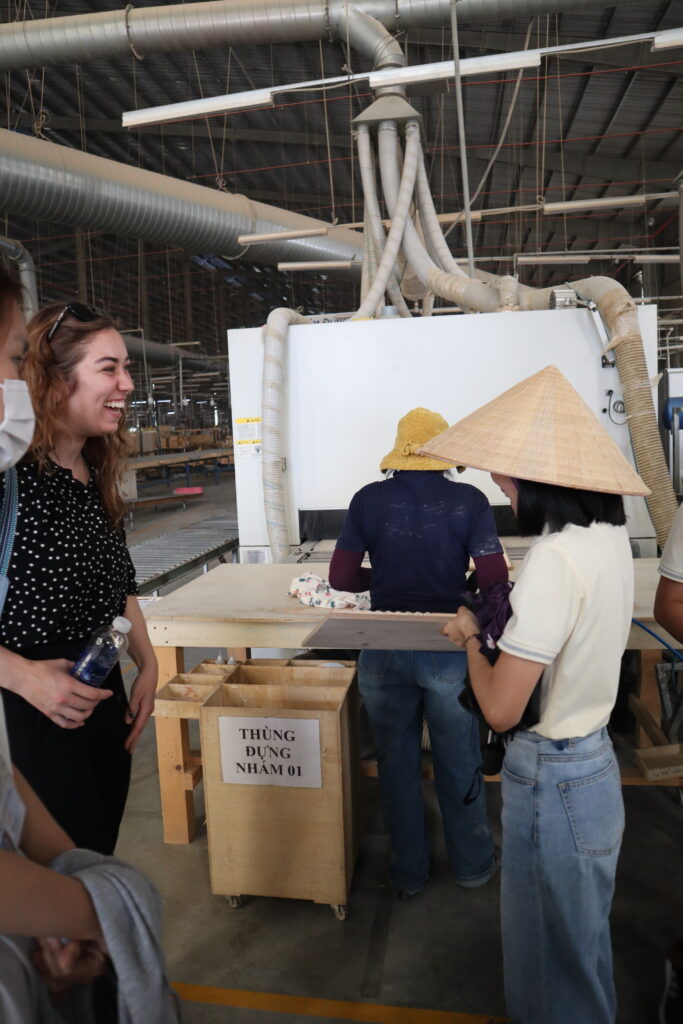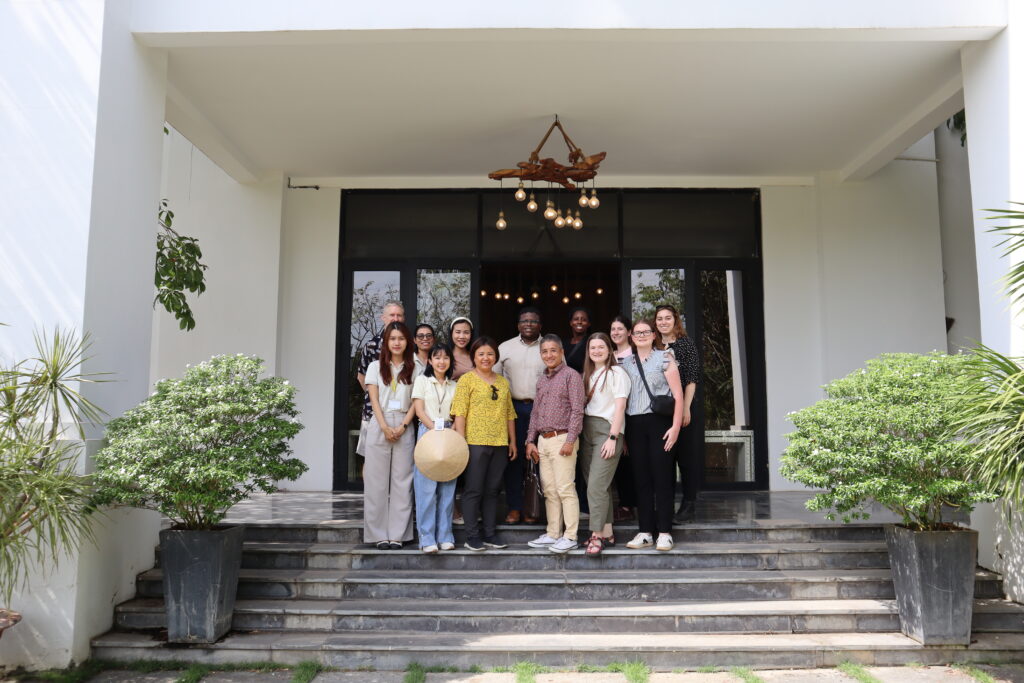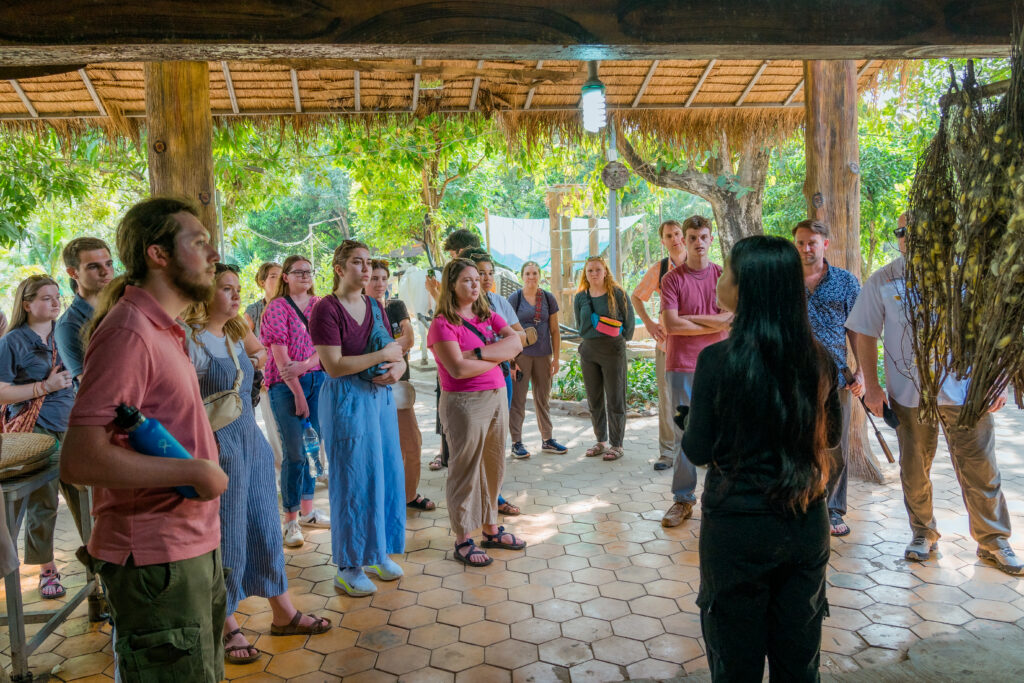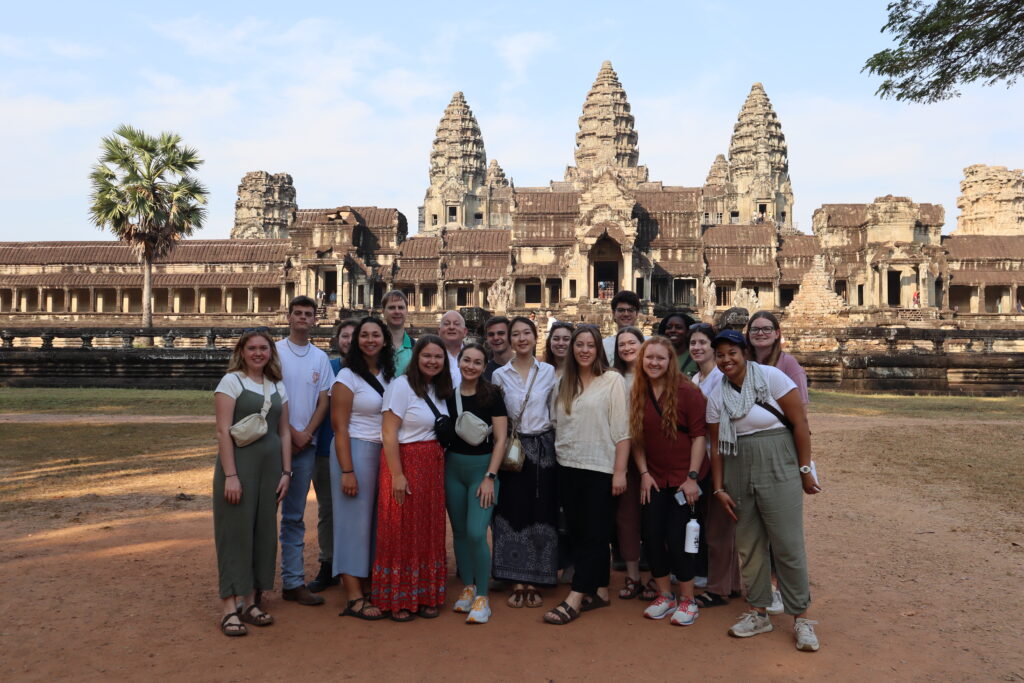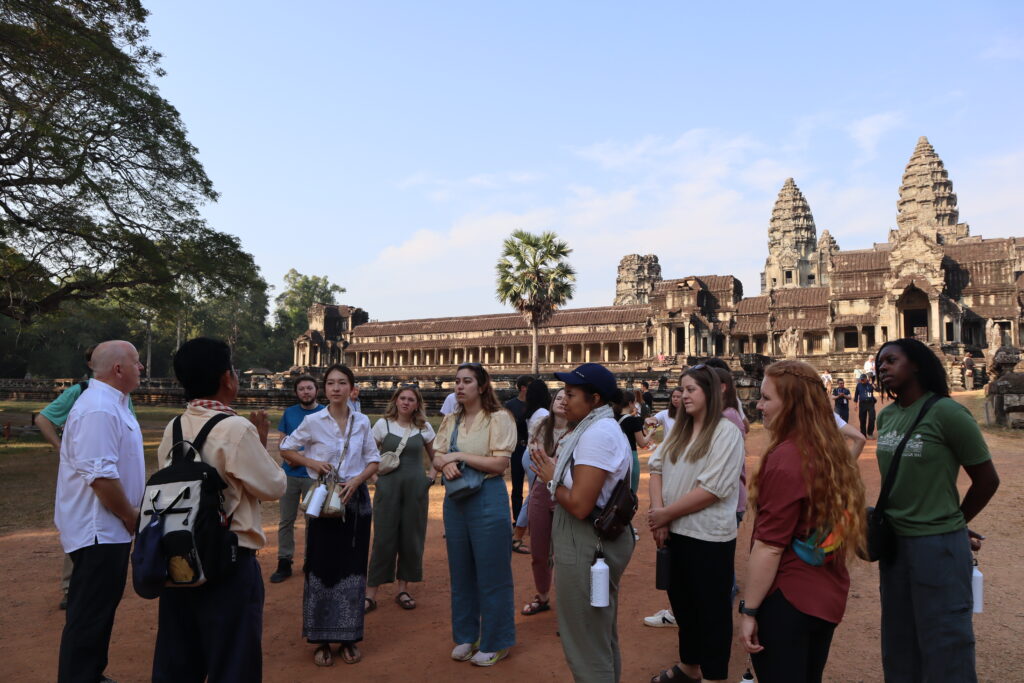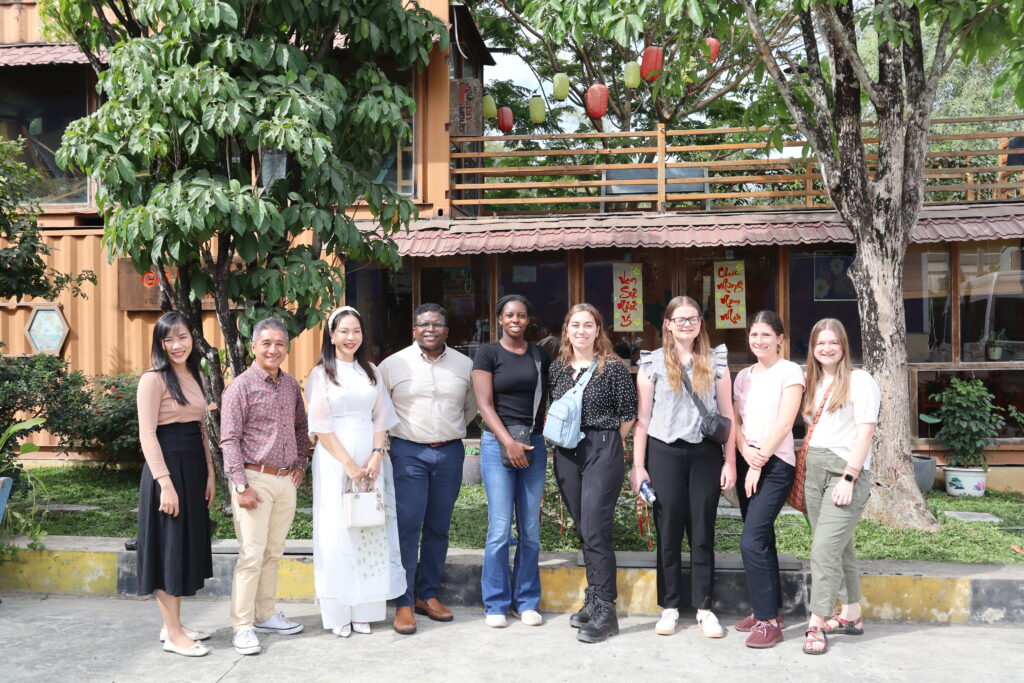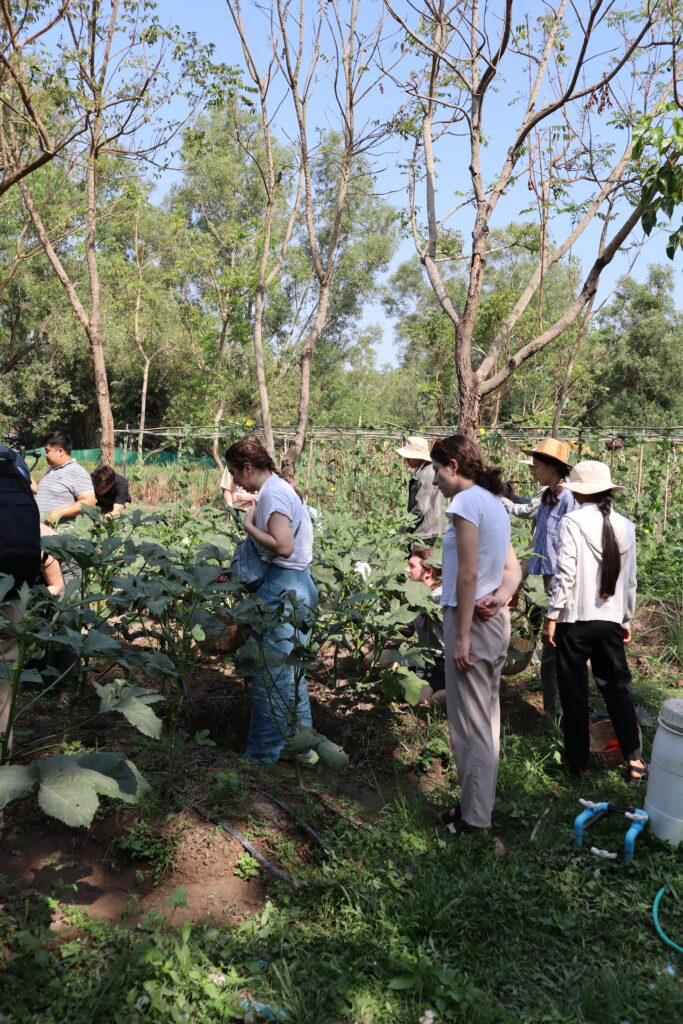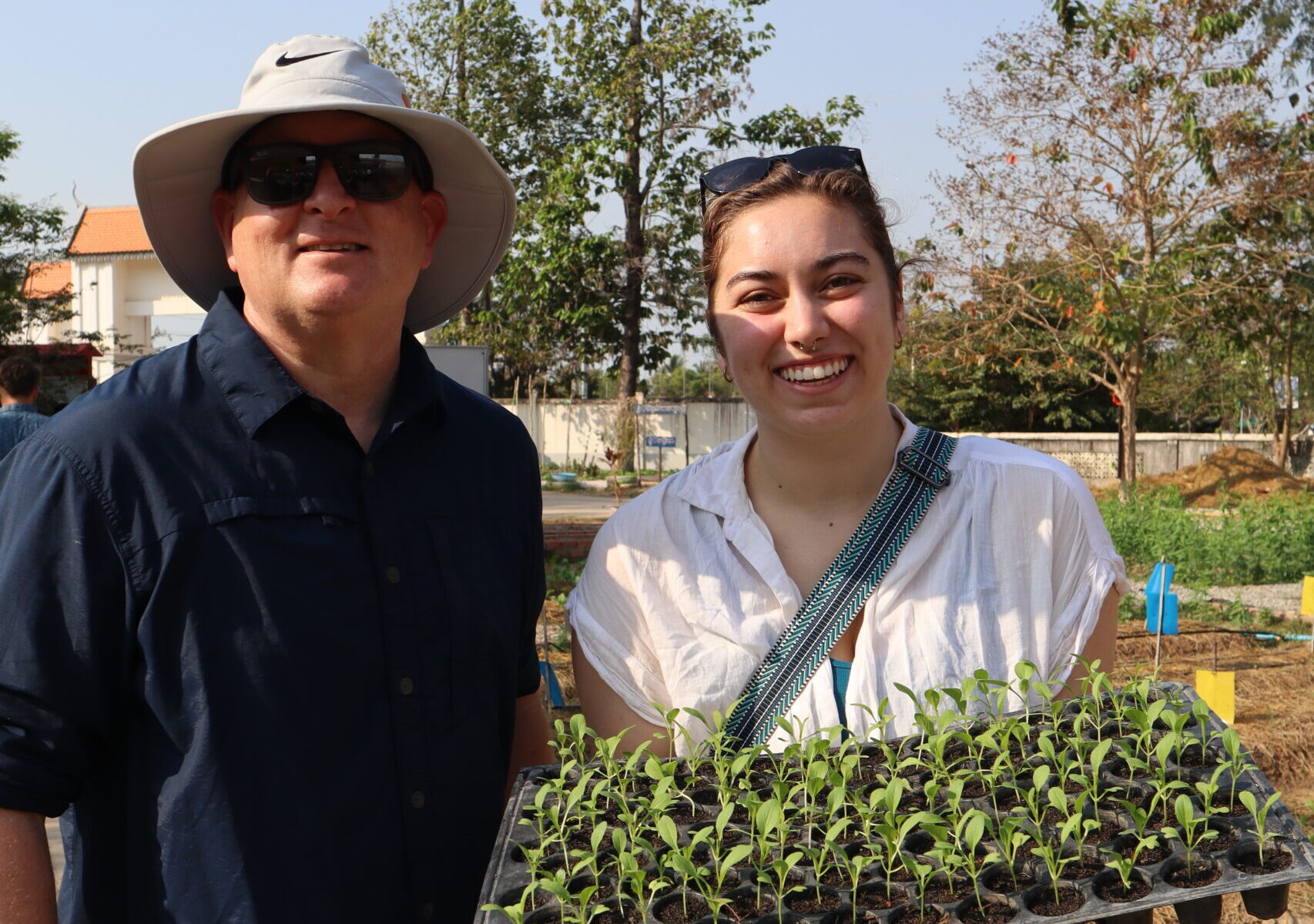
NNF fellows reflect on the impactful experiences they had during a recent study abroad in SE Asia
By Brooke Adams
In partnership with the University of Tennessee Institute of Agriculture, Department of Agricultural and Resource Economics (AREC) and the Department of Agricultural Leadership, Education and Communications (ALEC), the Smith Center has been involved in a new graduate fellowship program that focuses on international trade and development. This fellowship is funded by the National Needs Fellows Program (NNF), an initiative from USDA’s National Institute of Food and Agriculture (NIFA), and began in August 2023. Graduates will earn a master’s degree in either Agricultural and Resources Economics or Agricultural Leadership, Education and Communications. While these students complete their graduate program of study, they will engage with a core of classes on international trade and development and participate in a global experience together as a cohort. As a part of the fellowship, these graduate students participated in a study abroad experience to Southeast Asia to enhance the skills they have acquired throughout their time in the fellowship. Find out more about this experience directly from these NNF fellows throughout this #StudyAbroadStories series!
Natalie Crisci is a first-year graduate student in the Herbert College of Agriculture pursuing a master’s degree in natural resource economics with a focus in international trade and development. Her research focus is in international environmental policy and carbon emission regulation as it relates to international trade.
One of the highlights of our trip to Cambodia was the opportunity to visit high schools and being able to interact with students who were learning concepts about foundational agriculture. We toured a high school campus that had an on-site Agricultural Technology Park (ATP). It was exciting to see the agriculture production strategies they were developing and practicing. They implemented a number of strategies that are used to improve agricultural technologies and productivity. One of these methods is intercropping by utilizing the three-sisters method, which is when producers plant crops like corn, beans and squash together. They also implement integrated pest management systems by planting a barrier of pest repelling plants to keep their crops safe. These students gain so much by having resources like the ATP on campus to help them explore these innovative agricultural technologies. They even have the unique opportunity to develop their own agricultural technologies within their classes.
At the end of our ATP tour, three groups of students presented their technologies which included methods that use greenhouses and impermeable barriers. These students bravely stood up in front of a group of native English speakers and presented their class projects in English. One student in particular was quite a charismatic presenter, he was hilarious. I was so impressed by all of their presentations and the effort that went into implementing full scale versions of their project’s technologies. It was inspiring to see the next generation of young minds learning these important and practical concepts that can translate directly into their ability to provide for themselves in the future.
